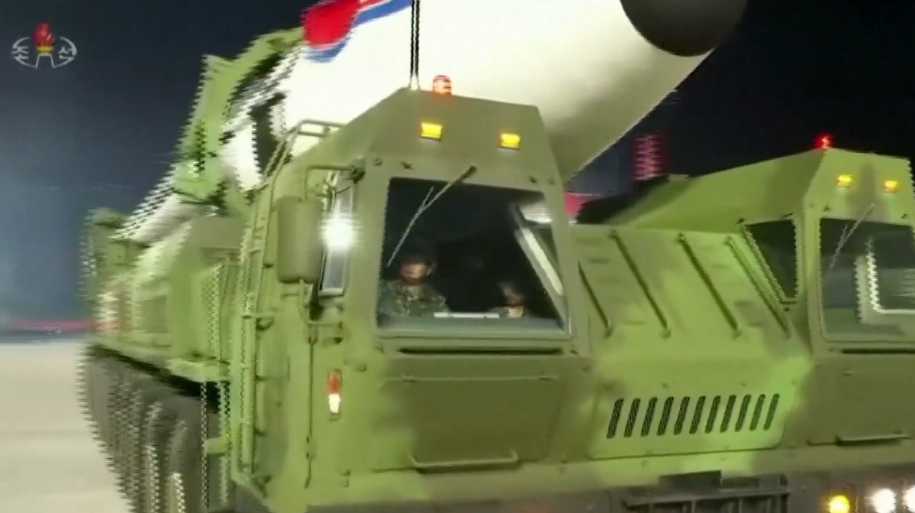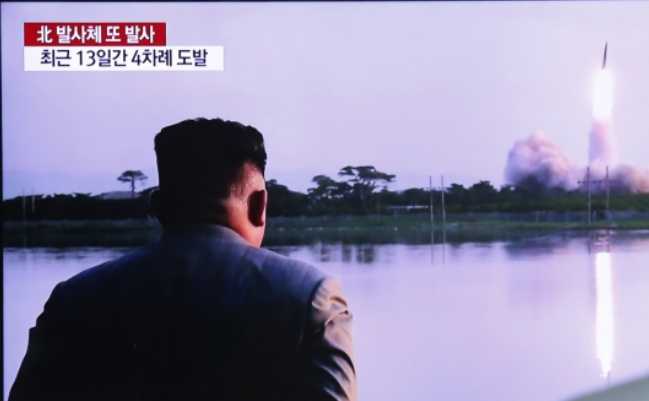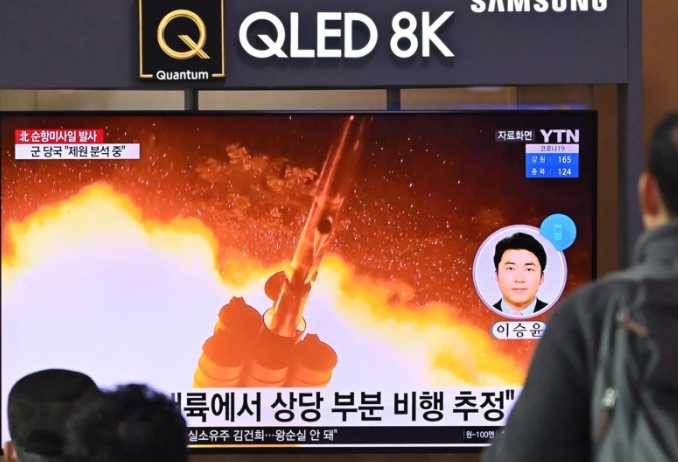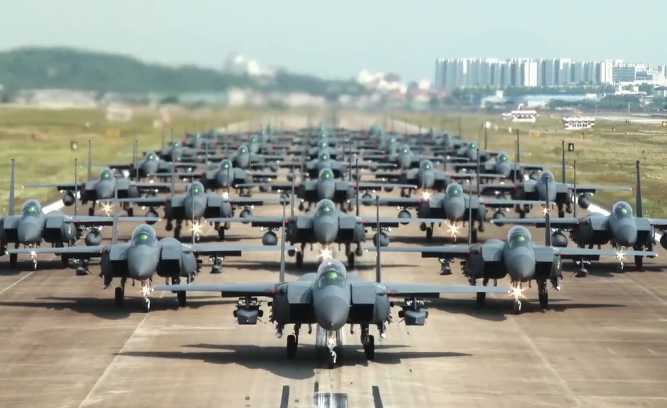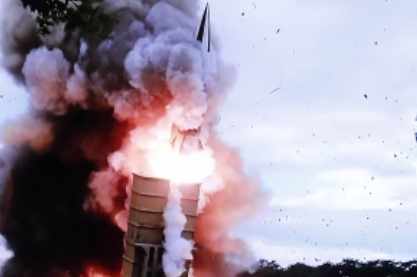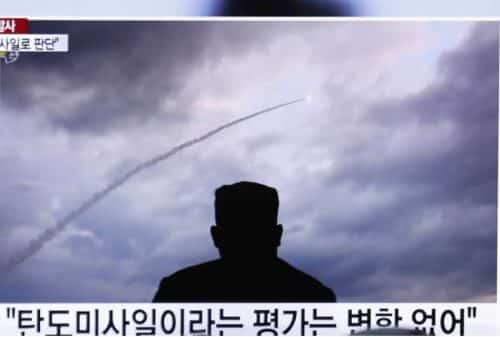SEOUL, SOUTH KOREA – North Korea conducted a short-range projectile launch several days ago, according to U.S. officials, in what appears to be Pyongyang’s first missile-related activity this year.
The Washington Post first reported the launches late Tuesday, saying “multiple short-range missiles” were launched “last weekend” but providing no other details.
In a briefing, a senior U.S. administration official confirmed but downplayed what he called “military activity” involving a “short-range system.”
“It is a normal part of the kind of testing that North Korea would do,” the U.S. official said.
It is not clear which missiles were tested, when they were fired or how far they flew. But U.S. officials say the launch was not prohibited by United Nations Security Council resolutions banning North Korea from conducting ballistic missile activity.
“Because this does not, it probably gives you an indication of where it falls on the spectrum of concern,” the official said.
“We do not believe it is in our best interest to hype these things,” he added.
U.S. and South Korean officials usually provide details shortly after North Korean launches. Pyongyang also usually heralds the activities on the front pages of its state media the following day.
None of that happened this time, leading some experts to question whether the missiles tested were small or evaded radar detection by the U.S. and its allies.
Policy review
The launches came days after visits to Seoul and Tokyo by U.S. Defense Secretary Lloyd Austin and Secretary of State Antony Blinken.
The Biden administration is carrying out a wide-ranging North Korea policy review, which is in its “final stages,” according to the U.S. official who briefed reporters Wednesday.
The official said Japanese and South Korean officials will visit Washington next week to discuss the outcome of the review.
“All I can tell you is that we are on our forward foot in terms of wanting to clearly signal that we are prepared for continuing engagement with key partners, and indeed with North Korea,” he added. [content id=”79272″]
North Korea stance
Last week, North Korea blasted U.S.-South Korea joint military exercises, warning against what it sees as provocative actions that cause a “stink.”
The Biden administration says it has reached out to North Korea through several channels to renew dialogue. But North Korea says it won’t respond until the U.S. drops what it calls Washington’s “hostile policy.”
North Korea’s latest short-range missile tests appear to be a “relatively subtle message to the Biden administration that time is running out for restarting direct talks,” said Jessica Lee, senior research fellow on East Asia at the Washington-based Quincy Institute.
Others see the test as an indication of a more obstinate stance from the North.
“Pyongyang is signaling it will tolerate continued economic reliance on China in order to come out of the pandemic on the offensive against Washington and Seoul,” said Leif-Eric Easley, a professor at Ewha University in Seoul.
More tests coming?
Many experts expect North Korea will soon resume bigger tests, possibly of longer-range ballistic missiles.
North Korean leader Kim Jong Un said in January 2020 that he no longer felt bound by his self-imposed moratorium on long-range missile and nuclear tests.
Pyongyang has not conducted a nuclear test or launched an intercontinental ballistic missile since 2017 — before his diplomacy with former U.S. President Donald Trump.
Kim has repeatedly tested shorter-range ballistic missiles, but Trump downplayed those tests, saying they were unimportant.
North Korea is prohibited from any ballistic missile activity by United Nations Security Council resolutions.
Late Tuesday, U.S. President Joe Biden also shrugged off the North’s latest launch, saying “nothing much has changed.”
This is North Korea’s first reported missile test since July 2020. That launch, which involved an anti-ship cruise missile and flew less than 100 kilometers, also went unreported for several weeks.
Some missile experts believe North Korea’s latest launch may have involved cruise missiles, which fly lower than ballistic missiles and may be missed by radars.
South Korea’s Yonhap news agency reported Wednesday that the launch involved cruise missiles off North Korea’s west coast.
[content id=”52927″]

